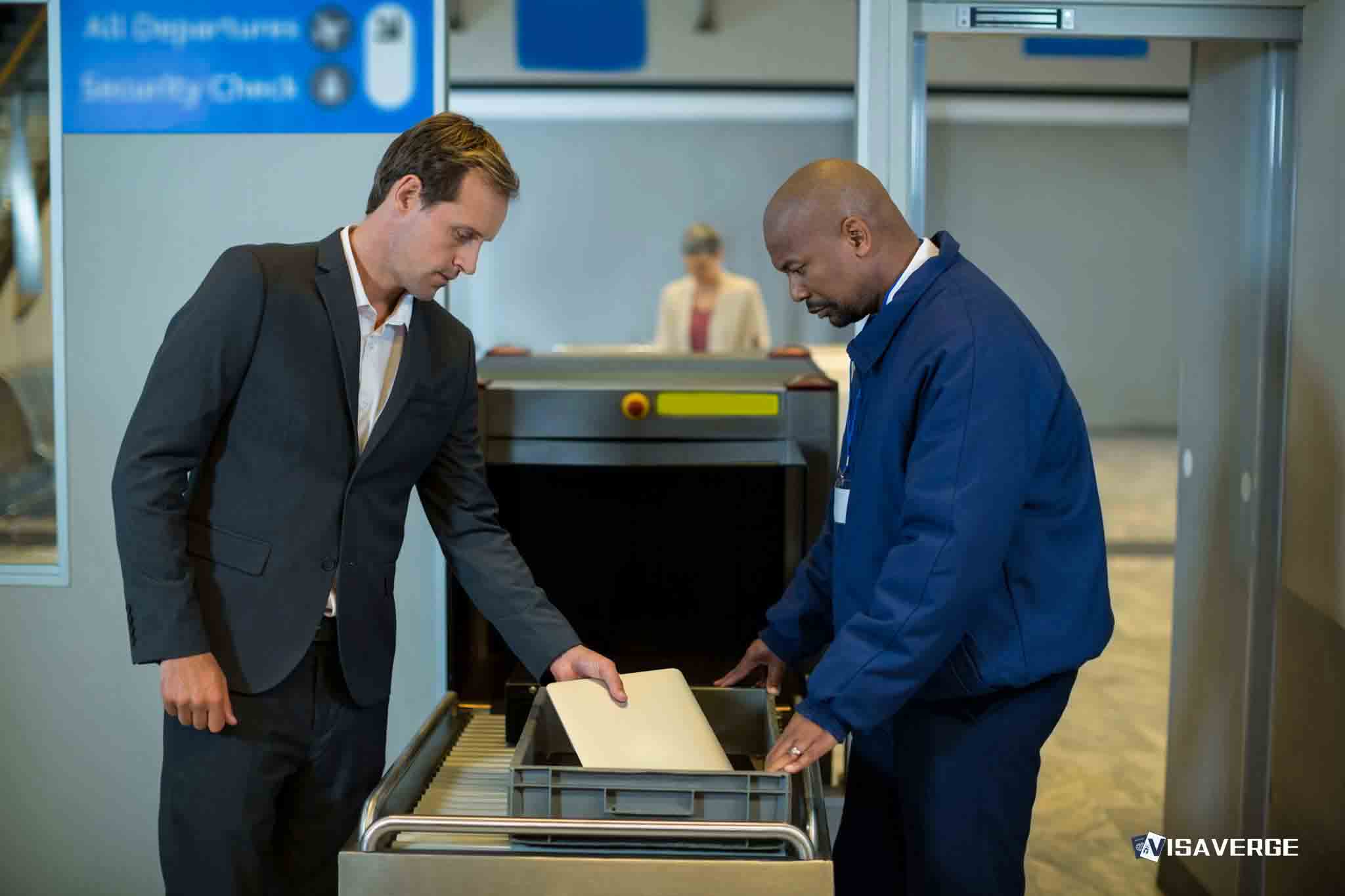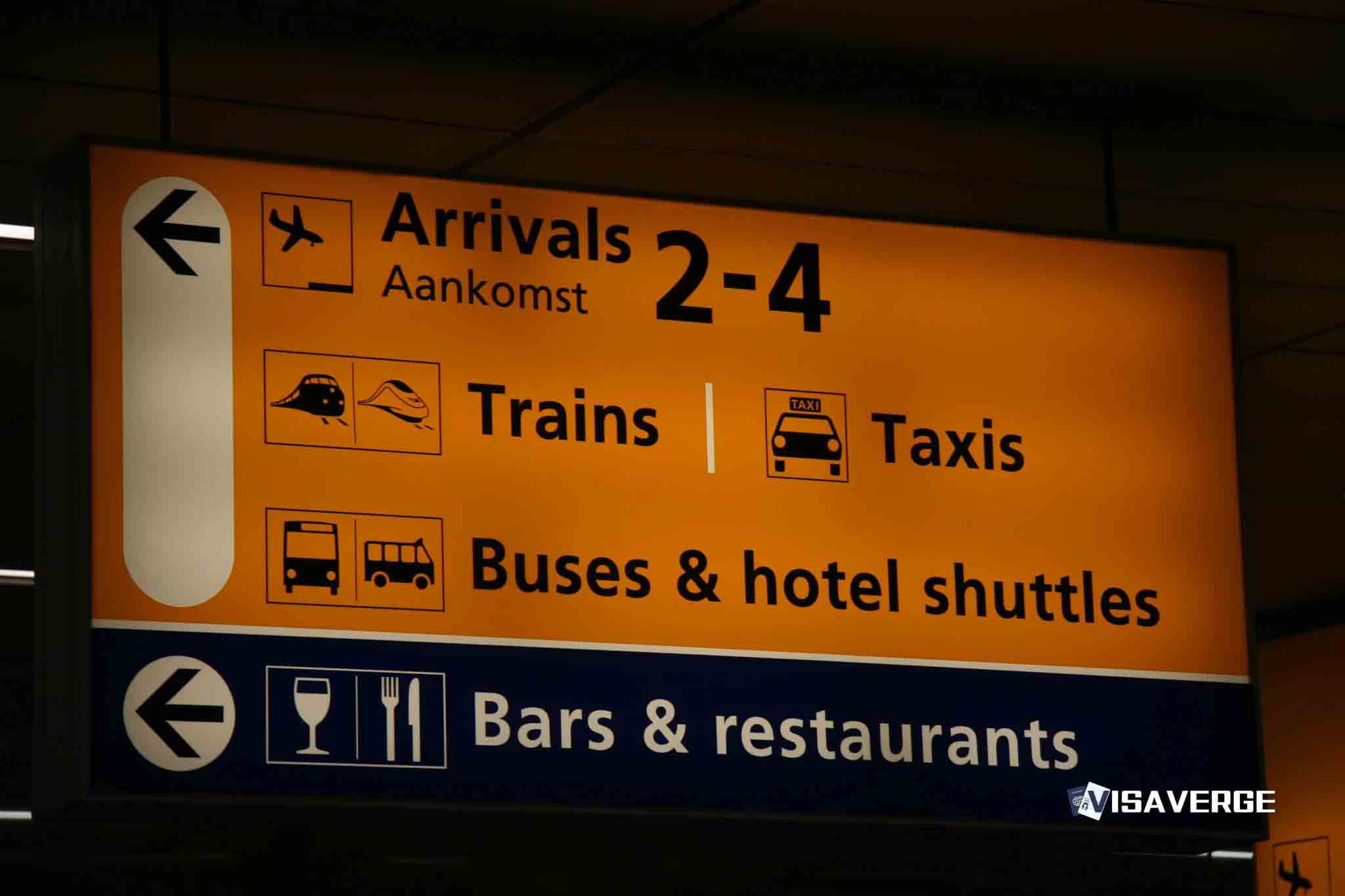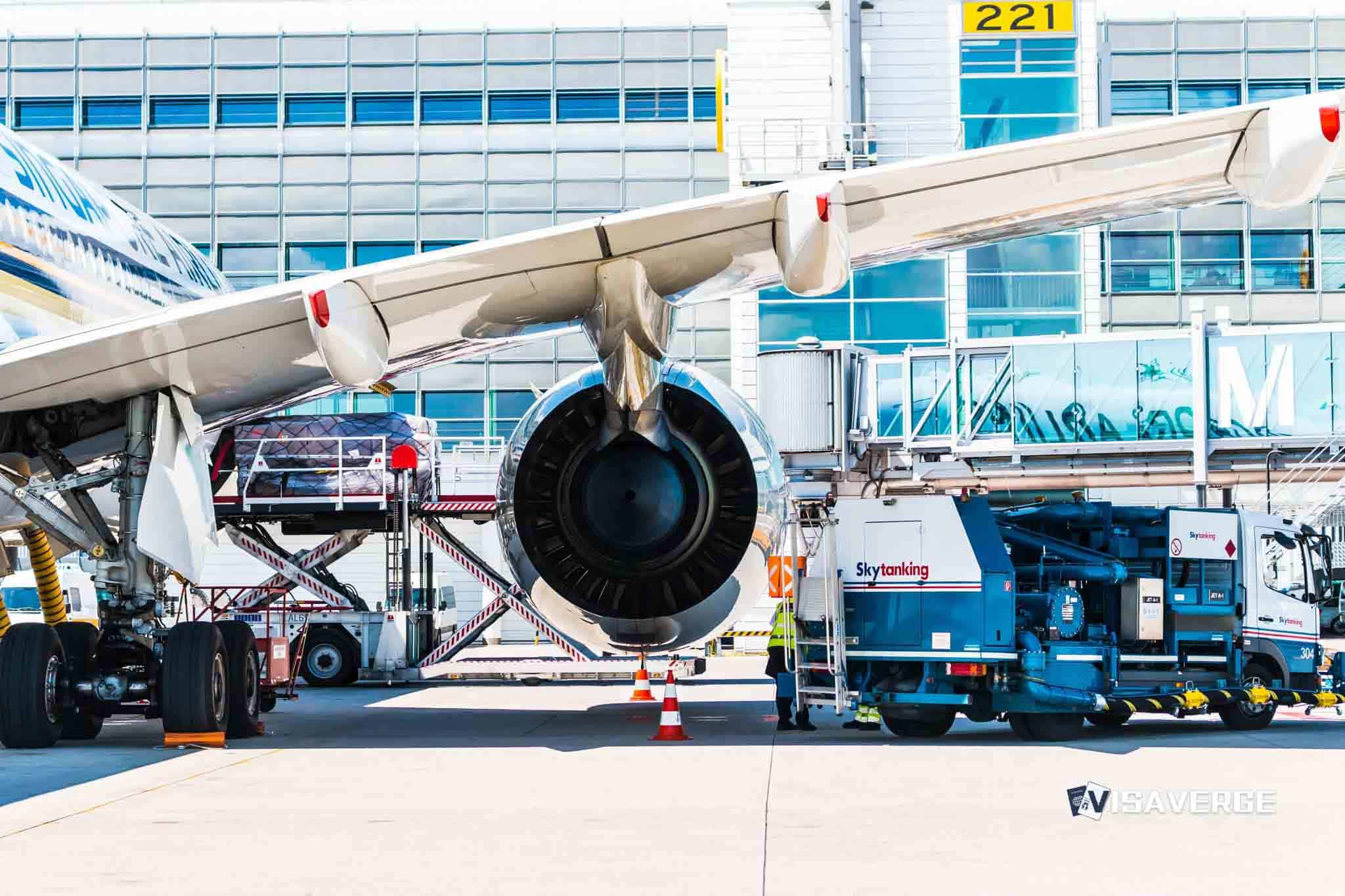Key Takeaways
• Ben-Gurion Airport arrivals hall closed for 30 minutes on May 21, 2025, due to a possible security threat alert.
• Missile attack targeted near Terminal 3 on May 4 caused injuries and disrupted international flights.
• Many international airlines have suspended flights to Israel; only some Israeli carriers continue operations.
Travelers arriving at Ben-Gurion Airport on the night of May 21, 2025, faced an unexpected delay when the busy arrivals hall was closed off over fears of a security incident. Israeli news outlets and people at the scene reported that the arrivals area was shut for about half an hour as a safety measure. No one was allowed to enter or leave the area during that time, leaving passengers, families, and airport workers waiting for news about what was happening. This event is the latest sign that travel into and out of Israel’s main airport remains far from normal, especially after recent attacks and an ongoing tense security environment.
What Happened at Ben-Gurion Airport?

The arrivals hall at Ben-Gurion Airport, known for its constant flow of international passengers, fell silent late at night on May 21. Airport workers quickly sealed off the hall after officials got an alert that warned about a possible threat inside airport grounds. The order was given without warning. Within minutes, police and security teams kept everyone inside the hall, not letting anyone move in or out. Travelers found themselves stuck—some after long journeys, others waiting to reunite with loved ones. The closure caused heavy crowding, long lines, and confusion as people tried to figure out the reason for the sudden stoppage.
Officials have not shared any more information about what set off the alert. There has been no official statement from the airport or security agencies saying if a suspicious person, item, or cause was actually discovered. After roughly thirty minutes, and with no reported serious incident, the arrivals hall reopened. Flights, baggage collection, and all regular services slowly started again. But for travelers and airport workers, the stress of the event did not fade quickly.
This short interruption, while limited in time and effect, shows how quickly fears of a security incident can bring travel at a major hub to a complete stop.
What Is the Ben-Gurion Airport Arrivals Hall?
For those less familiar, the arrivals hall is the section of the airport where incoming flights land, and passengers first enter the country. It is where people meet family, grab luggage, and go through border checks. At Ben-Gurion Airport, the arrivals hall is usually full at all hours with crowds from around the world. It serves as the main gateway to Israel, handling millions of visitors each year. Any closure of this hall leads to a chain reaction—holding up not just passengers getting off planes, but also affecting traffic, airport shops, and the transportation network that depends on the airport’s routines.
The Security Incident: What We Know
Details about the alert that sparked the closure are few. What the public knows comes from news reports and those who were inside the terminal at the time. Most sources say that authorities received “a warning about a possible threat.” The exact nature—a suspicious item or person—was not stated. In response, standard security procedures were put in place: the arrivals area was sealed off to everyone, security teams swept the hall, and people were ordered to wait until the all-clear was given.
After about half an hour, authorities allowed normal operations to resume at Ben-Gurion Airport. No arrests, injuries, or discoveries of dangerous materials have been reported, and so far, airport spokespeople have stayed quiet about the finer details. This deliberate silence reflects a common practice—officials often do not share more information about investigations until they are sure there is no broader risk.
Recent Security Risks at Ben-Gurion Airport
The temporary closure did not happen in isolation. Over the past month, Israel’s main airport has faced a number of threats much more serious than a routine security check. On May 4, 2025, Ben-Gurion Airport was at the center of a missile attack when Yemen’s Houthi rebels fired a hypersonic ballistic missile toward the airport. The missile hit just outside Terminal 3, causing injuries to eight people and damaging roads near the main entrance.
It was a major event: the missile managed to get past Israel’s defense systems, and while it did not strike inside the terminal buildings, its impact was felt throughout the country’s aviation and security networks. In the days after, Houthi officials openly said more attacks could follow, naming Ben-Gurion Airport as a possible future target.
Because of the missile strike and the ongoing warnings, international airlines began suspending flights to and from Tel Aviv. Carriers from Europe, North America, Asia, and other regions decided the dangers were too high for their crews and passengers. Many of these flight cancellations remain in place, even weeks later, as airlines wait for more signs of safety before coming back. In some cases, only Israeli airlines and a handful of others continue flying, trying to help travelers stranded abroad, but the loss of so many carriers has left thousands stuck and the airport far quieter than normal.
For more details on changes to airline services during this period, you can find updates on the Israel Airports Authority’s official website.
The Impact of Closures and Security Alerts
For travelers, the mix of temporary closures and ongoing flight suspensions makes planning any trip through Ben-Gurion Airport a challenge. The situation changes quickly, and passengers may face:
- Sudden delays at arrivals or departures if another security incident happens or is suspected.
- Long wait times during security sweeps, even if no real problem is found.
- Cancelled or rerouted flights, forcing changes in travel plans.
- Difficulties finding help if stranded abroad, since many foreign airlines are not operating.
- Emotional stress from uncertainty, confusion, and fears about safety at the airport.
Flights do not just carry tourists and business travelers. Many people at Ben-Gurion Airport each day are there for life events—family reunions, weddings, funerals, education or medical visits. The effects of closures and threats are widely felt.
VisaVerge.com’s investigation reveals that the continued tension at Israel’s main airport increases the burden on both airlines and government officials, who must balance strong security with the basic needs of passengers. For the airport staff, each new alert brings added work, responsibility, and risk.
Why Are Airports Like Ben-Gurion Frequent Targets?
Ben-Gurion Airport is not just a normal travel hub. As Israel’s largest and most important airport, it is the main entry and exit point for millions each year. Its position makes it a symbol for the country, and therefore, it sometimes becomes a target in times of tension or open conflict.
Security at Ben-Gurion Airport is known as some of the tightest in the world. Travelers regularly go through multiple layers of checks. The airport’s design, staffing, and routines all serve the purpose of keeping people safe. Still, as the events in May 2025 show, no system can fully prevent threats or stop every incident before it causes trouble.
There are a few reasons why attackers focus on places like airports:
- Large numbers of people gather at certain times, making it easier for an attack to get attention.
- Closing or disrupting an airport can upset a country’s economy, government, and daily life.
- High-profile incidents help those who stage them send messages or make demands.
In the recent missile attack, experts say the choice of Ben-Gurion Airport was both practical and symbolic—striking near a vital part of the country, just as global visitors and Israelis were arriving or leaving.
How Do Authorities Respond to Security Incidents?
Every time a security incident is suspected at Ben-Gurion Airport, clear and strict rules are followed. Security teams quickly close off affected areas, such as the arrivals hall, and begin careful searches with trained staff, sniffer dogs, and regular checks. These steps, though sometimes frustrating for those caught up in them, are meant to stop any real danger before it can do harm.
The airport uses cameras and advanced systems to monitor all movements. Every bag, both checked for flights and carried by people entering the building, goes through various scans. Passengers may be asked extra questions or have their belongings checked twice. If staff finds anything unusual, they will stop everyone near that spot until they can confirm all is safe.
Not sharing every detail with the public is also a safety and investigation tactic. Authorities often keep quiet about what set off an alert or exactly how they handled it. This keeps potential attackers from learning what triggers airport responses or how to avoid detection.
The Ongoing Effects on Airlines and the Economy
Since the missile attack and repeated security alerts, international airlines remain cautious about returning to Ben-Gurion Airport. As of late May, most large foreign carriers are not operating flights into Israel. This has left Israeli passengers with fewer options and higher prices as they look for ways home or abroad. For many businesses, especially those relying on travel, tourism, and trade, the airport’s reduced schedule is a serious problem.
Local carriers have tried to fill some of the gaps, offering more flights to bring home stranded citizens or keep trade links open. But the loss of regular international flights cannot be fixed overnight. Airlines worldwide have their own safety standards and insurance rules, and must follow advice from both their own governments and Israeli authorities before resuming regular service.
Official Silence: Why So Little Information?
Many people wonder why no official statement has been made about the May 21 incident in the arrivals hall. There can be many reasons for this. Sometimes, investigations are still happening, or sharing too much could put security teams at risk. Other times, officials may want to avoid causing panic by sharing details that cannot be confirmed.
Airport agencies know that public trust depends on showing the right balance between safety and keeping travel moving. When there is doubt, authorities tend to act on the side of caution, even if it means delays or inconvenience in the short term.
Looking Ahead: What Passengers Should Expect
Travel through Ben-Gurion Airport is likely to remain unpredictable for some time. With the memory of a missile attack still fresh and repeated security incident alerts shutting down key sections like the arrivals hall, both passengers and airlines are acting with extra caution. Those planning international or domestic trips into or out of Israel should:
- Check flight status often, as schedules can change at the last minute.
- Arrive at the airport early, knowing security lines may be longer than usual.
- Bring extra patience, as closures and alerts can happen without warning.
- Stay alert to updates from both airlines and the Israel Airports Authority.
Authorities encourage all travelers to follow directions from airport staff and stay calm in the event of alerts. Memories of crowded halls, blocked exits, and anxious moments remain strong for many who were present for the half-hour closure on May 21.
Summary and Takeaways
The Ben-Gurion Airport arrivals hall closure on May 21, although lasting only about thirty minutes, highlights how quickly security fears can impact air travel. Increased alertness is part of daily life at Israel’s main airport, especially after the recent attack that targeted facilities near a crowded terminal earlier this month. For travelers, the ongoing threat environment means more disruptions, extra waiting, and a need to plan for sudden changes.
Airlines, airport workers, and officials continue working to keep passengers safe while trying to maintain the flow of people and goods. As the situation develops, official channels and trusted news sources remain the best way for travelers to get accurate and up-to-date information.
For anyone traveling to or from Israel, awareness and flexibility are now more important than ever. Ben-Gurion Airport remains open and operating, but the path through its arrivals hall can change in an instant when a security incident is feared.
Learn Today
Arrivals Hall → Area where passengers enter Israel, collect luggage, and pass border checks after international flights.
Security Incident → Any event or threat that causes authorities to take protective actions at an airport.
Missile Attack → A targeted offensive using missile weapons that can disrupt airport and regional security.
Flight Suspension → Temporary halt of airline services due to safety, security, or operational concerns.
Israel Airports Authority → The official organization managing Israel’s airports and overseeing security and operations.
This Article in a Nutshell
On May 21, 2025, Ben-Gurion Airport abruptly closed its arrivals hall for 30 minutes due to a security alert, highlighting ongoing risks after a recent missile attack and continuing travel disruptions for thousands of passengers.
— By VisaVerge.com
Read more:
• Department of Homeland Security denies Kristi Noem reality TV show plans
• Air France extends Israel flight cancellations over security risks
• International students in Canada struggle as food insecurity rises
• Liene Tavares DeBarros Sold Fake Social Security, Green Cards
• Child Tax Credit plan would bar many immigrant families without a Social Security Number







